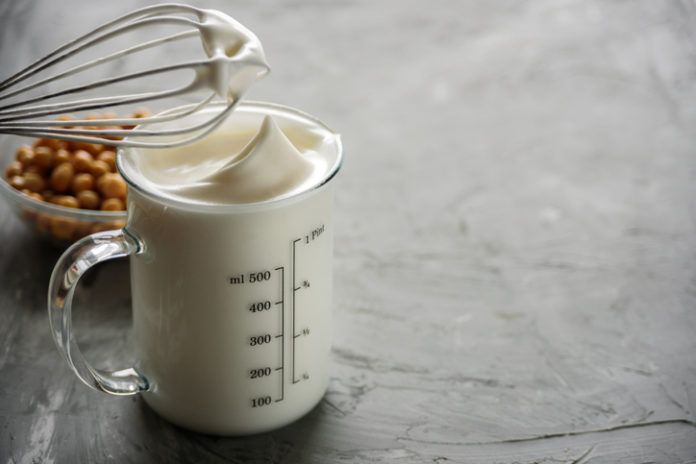A. Melissa Townsend, MS, RD, CDN, Registered Dietitian, Tufts N19, answers: “Eggs are an important ingredient in baking and cooking because of their functionality, including emulsifying, binding, foaming, leavening, and thickening. For those who are looking for a vegan egg replacement, the best option depends on what you’re trying to make.
Ground flaxseeds or chia seeds are one of the most common egg replacements. To replace one egg, combine one tablespoon of ground flaxseed or chia seeds with three tablespoons of water and let sit for 10 to 30 minutes to create a gel that works well in cakes and brownies.
Aquafaba, the liquid from canned chickpeas, is another option. It can be whipped to stiff peaks like egg whites. Three tablespoons can be used to replace each egg white or whole egg in meringues, cakes, or cookies. (Note that this brine can be high in sodium.)
Two tablespoons cornstarch mixed with three tablespoons water is a flavorless option to replace each egg in custards and pies.
One teaspoon of baking soda mixed with one tablespoon of white or cider vinegar per egg can be used in cakes, cupcakes, and quick breads.
One-quarter cup of pureed silken tofu or soy yogurt can be used for each egg in breads, muffins, and pound cakes. This will result in a denser, moist texture. Extra baking powder may be necessary.
Fruit or vegetable purees, such as one-half to one mashed banana or one-quarter cup of applesauce, pureed pumpkin, or mashed sweet potato can be used in breads and muffins. With these options, you may need to reduce the sugar in the recipe.
Three tablespoons of creamy nut butter can be used per egg in cookies. Make sure you choose a recipe that will taste good with a nutty flavor!
Commercial vegan egg replacers are also available. These are made from starches and have directions for how to replace whole eggs or egg yolks when mixing the replacer with water.”
























